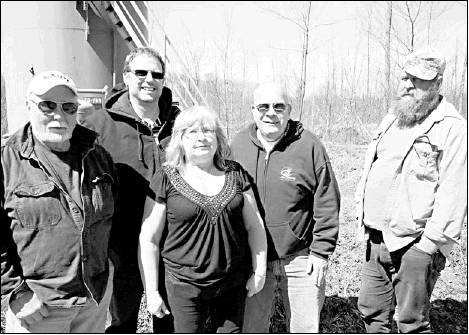Pa. sues towns that banned frack wells
By Andrew Maykuth STAFF WRITERThe Pennsylvania Department of Environmental Protection has sued two tiny townships that banned shale-gas wastewater disposal wells, setting the state on a collision course with municipalities over who governs oil and gas operations within a town’s local boundaries.
The DEP filed suits Monday in Commonwealth Court against Highland Township, Elk County, and Grant Township, Indiana County, seeking to invalidate home-rule charters that the towns’ voters expressly approved to ban wastewater wells.
The legal actions were unmentioned in DEP’s public announcement on Monday that it had approved long-delayed permits in the townships for disposal wells.
The lawsuits come as Gov. Wolf, a Democrat, makes a push to be more hospitable to the gas industry, which has made Pennsylvania the nation’s second-largest gas producer in the last decade. Last week, Wolf released a study aimed to attract plastics and petrochemical manufacturers that use natural gas as a raw material.
The wastewater permits approved this week would allow Seneca Resources Corp. in Elk County and Pennsylvania General Energy Co. in Indiana County to dispose of wastewater from oil and gas production, including waste produced from hydraulic fracturing, by pumping into deep “injection wells” that had previously produced natural gas.
The DEP says that under the Oil and Gas Act and the Solid Waste Management Act, regulation of wastewater is a state function.
“The permitting and operation of wells for the disposal of brine, ‘produced water,’ ‘frack water,’ flowback, and other waste or byproducts of oil and gas extraction and other fluids is exclusively and comprehensively regulated within the commonwealth by the department,” the DEP said in its suit against Highland Township.
“Underground injection control” is a common method of disposing of wastewater into deep rock formations, where geologists say the waste will remain contained. But it has triggered concerns in some states, especially Oklahoma, where an upturn in earthquakes has been linked to the disposal wells.
Both townships fought long, unsuccessful battles with the gas companies over the U.S. Environmental Protection Agency’s approval of the wastewater wells. In a court settlement, Highland Township last year invalidated an ordinance to forbid wastewater wells, and then voted in November to approve a new home-rule charter that expressly bans wastewater disposal within its boundaries.
Highland, with about 500 residents, and Grant Township, population 700, were counseled on their home-rule charter efforts by the Community Environmental Legal Defense Fund, a nonprofit that has suggested novel legal strategies for local residents to resist unwanted developments. CELDF has attempted, without success, to get courts to recognize “the rights of ecosystems and natural communities to exist and thrive.”
Chad Nicholson, a CELDF spokesman, said that he had not seen the legal actions, but was unsurprised. “Lawsuits by the state against towns trying to exercise their democratic rights — that definitely makes clearer the relationship between state agencies and corporate interests,” he said.
DEP’s court case could revisit some of the issues that were addressed in the Pennsylvania Supreme Court’s landmark 2013 ruling in the Robinson Township case, which struck down sections of the state’s Oil and Gas Act that superseded local zoning regulations.
In the lawsuits against Highland and Grant Townships, the state says the surviving sections of the Oil and Gas Act still preempt local regulation of oil and gas operations. The state asked the courts to invalidate the townships’ charters. amaykuth@phillynews.com
215-854-2947
@Maykuth
